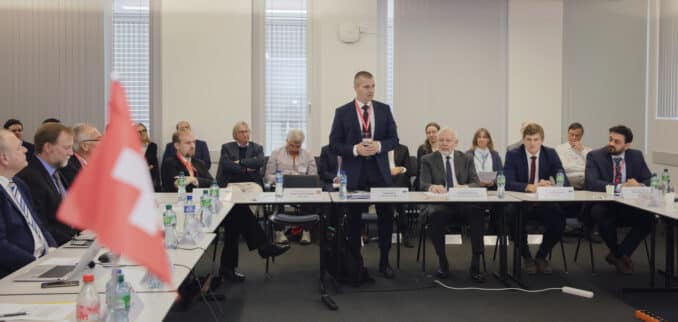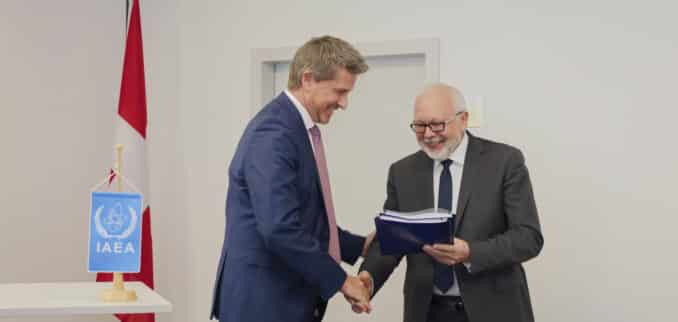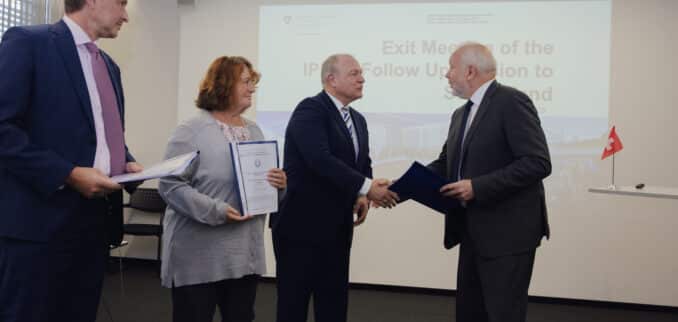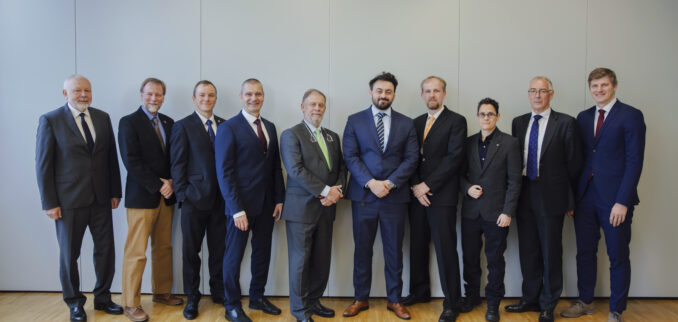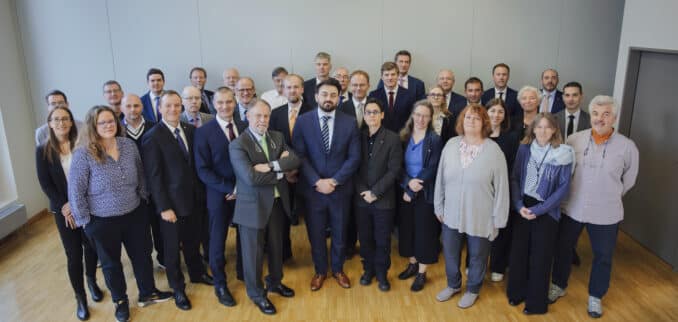Conclusion of the IPPAS Mission 2023: Switzerland has a strong nuclear security regime
The conclusion of the experts from the International Atomic Energy Agency (IAEA) upon completion of the two-week review mission is that Switzerland has a robust nuclear security system. During the mission of the International Physical Protection Advisory Service IPPAS, from 30 October to 10 November 2023, the international team carried out a detailed examination of the national foundations and measures for the protection of nuclear installations, nuclear material and radioactive material against unauthorised intervention.
Switzerland is committed to the continuous improvement of nuclear and radiological security. It has a strong nuclear security regime, which has been further strengthened since the IPPAS mission in 2018. This is the conclusion reached by the IAEA’s international team after the two-week follow-up mission. “The follow-up mission demonstrates the openness to an external review of the national system and Switzerland’s commitment to nuclear security,” emphasized Arvydas Stadalnikas, Head of the Integrated Nuclear Security Approaches Unit of the IAEA Division of Nuclear Security. During the exit meeting, he explained that the inclusion of an additional module for securing radioactive materials highlights Switzerland’s integrated approach to physical protection. The results of the mission indicate a well-established national security regime and confirm its alignment with the IAEA’s nuclear security guidelines.
Security aspects critically examined
As a member state of the IAEA, Switzerland has conducted an International Physical Protection Advisory Service (IPPAS): From 30 October to 10 November 2023, international experts reviewed Switzerland’s nuclear security regime. The Swiss Federal Nuclear Safety Inspectorate (ENSI) organised the mission in cooperation with the Swiss Federal Office of Energy (SFOE) and the Federal Office of Public Health (FOPH). It was the follow-up mission to the IPPAS review carried out in Switzerland in 2018.
The focus was on the national foundations and the measures with which nuclear installations, nuclear material and now, in addition, highly radioactive material are protected from unauthorised intervention. This related in particular to protecting against criminal acts, theft and sabotage. For the Federal Office of Public Health (FOPH), the IPPAS mission was a milestone in the FOPH-led and Federal Council-approved action plan to strengthen the radiological security in Switzerland “Radiss”.
The IPPAS Mission 2023
The Swiss Federal Nuclear Safety Inspectorate (ENSI) organised and carried out the nuclear security mission together with the Swiss Federal Office of Energy (SFOE) and the Federal Office of Public Health (FOPH). The International Physical Protection Advisory Service (IPPAS) is managed by the International Atomic Energy Agency (IAEA).
This was a follow-up to the IPPAS Mission 2018 on “nuclear installations and nuclear material”, but the first mission covering “highly radioactive material”. The IPPAS mission 2023 thus assessed:
- General legal and regulatory conditions,
- The security and IT security of nuclear installations,
- The security of nuclear goods and
- The security of highly radioactive material during handling and storage.
In order to obtain an overall picture of the situation in Switzerland, the international team of experts conducted interviews with the following authorities: ENSI, Federal Office of Public Health, Federal Office of Energy, Swiss National Accident Insurance Fund (SUVA), National Cyber Security Centre (NCSC), Federal Intelligence Service, Federal Police, Aargau Cantonal Police and the Federal Department of the Environment, Transport, Energy and Communications UVEK. In addition, the IAEA experts visited the Beznau and Leibstadt nuclear power plants, the ZWILAG AG interim storage facility in Würenlingen, LorNDT and the Lausanne University Hospital.
The IPPAS Mission team identified multiple best practices and formulated recommendations as to how Switzerland can further improve security in the nuclear and radioactive sector.
“With the utmost sincerity, I would like to thank all those involved in Switzerland for their engagement during the extensive preparation, and then for their commitment during the two-week review itself,” stated ENSI Director General Marc Kenzelmann upon completion of the mission. “We are very grateful to the IPPAS team for its critical examination of the security measures. The recommendations of the international experts are enormously important for ENSI and its partners. We must continue to work together to systematically and consistently strengthen nuclear security in Switzerland.”


